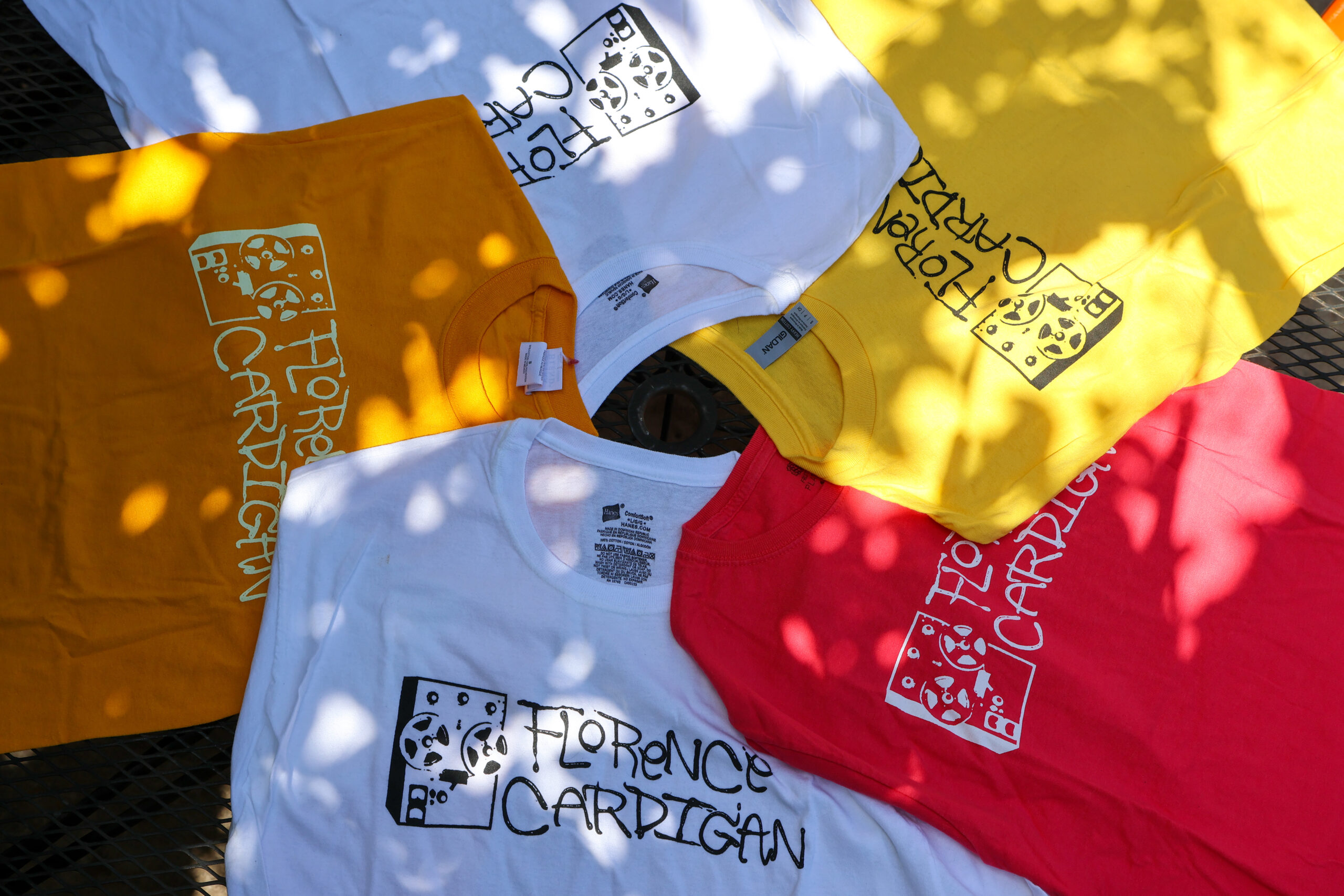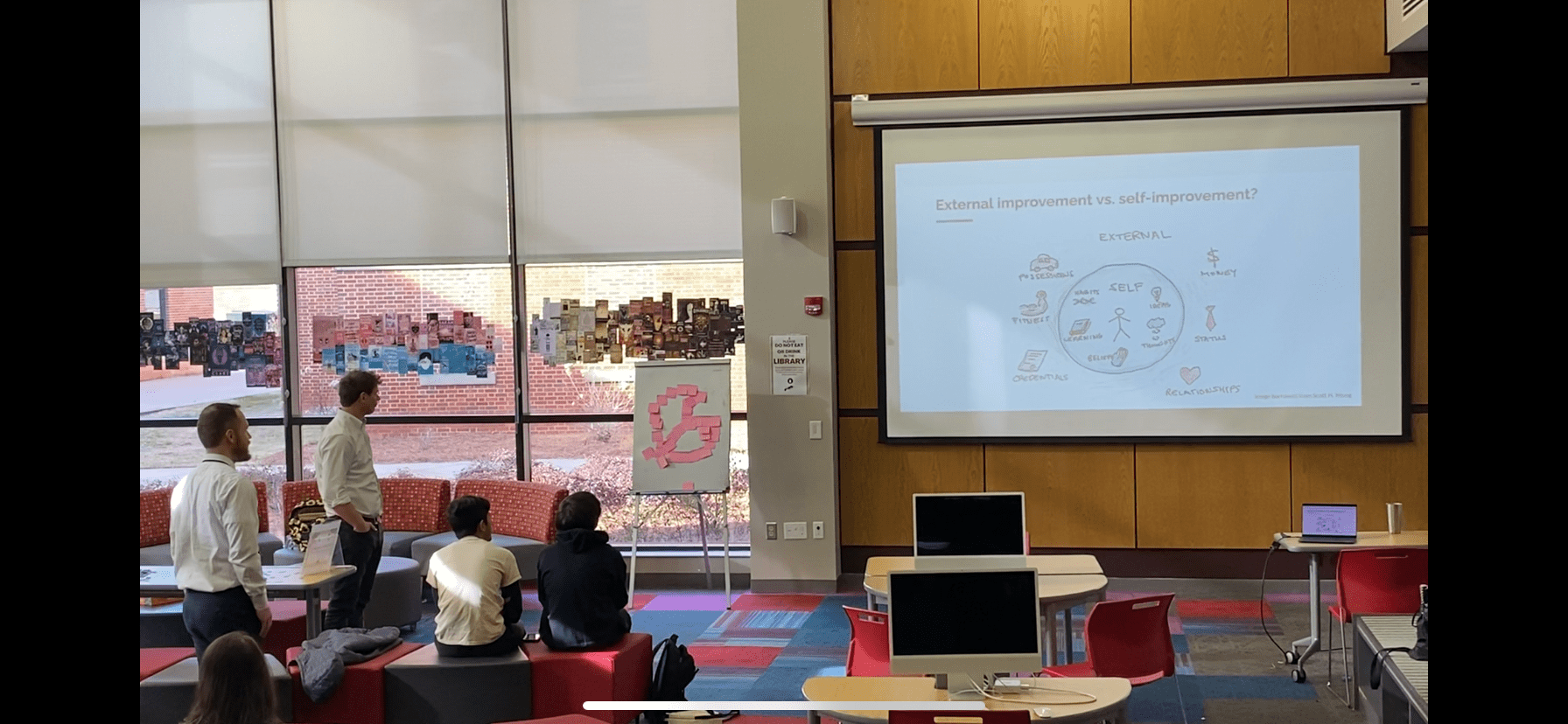In Athens, a town known for its DIY approach to music, local bands and students are rethinking a critical part of the music industry: merch.
Right now, streaming accounts for 84% of recorded music revenues in the United States. The thing is, musicians aren’t earning the majority of their revenue through collecting streams on songs. A single Spotify stream earns, on average, $0.00318 per stream, meaning it takes over 1,600 streams for an artist to earn $5. Therefore, the sale of a single shirt is worth over 12,000 streams.
This is where merch becomes so important.
Merchandise has become a lifeline for artists, but it comes with an environmental cost. While that single $40 cotton T-shirt is worth over 12,000 streams, it also uses 2,700 liters of water in its production. Dyeing and finishing these shirts and other items is responsible for 20% of global water pollution.
Athens band Florence Cardigan decided to take a more sustainable approach to its band merch. Instead of ordering a batch of new cotton shirts online, members of the band thrifted used T-shirts at Goodwill, costing them about $3 a piece. They then took them to a local screenprinting shop, Ruby Sues, to have their design printed. The shirts cost the band about $7 each to make.
Andrew Wright, guitar player for Florence Cardigan, explained that doing their merch this way gave them more creativity, flexibility and lower costs.
“We had a lot more options in terms of colors. Plenty more because if you get it off UberPrints, it’s pretty much all one color or like two colors. But we just had like a rainbow of colors,” Wright said.

In addition to the creative aspect, producing merch using secondhand shirts ensures that what is considered a temporary product is created in a sustainable way. Amy Manley, a doctoral candidate in the University of Georgia’s Department of Textiles, Merchandising and Interiors, stresses the importance of this.
“We want to make sure that it’s being made in an ethical way. It is advantageous if it’s also made out of materials that are considered sustainable. So, whether that means it can be recycled later, or, you know, its original fiber content is considered sustainable,” Manley said.
Florence Cardigan’s thrifted shirts may not have been made from sustainable materials originally, but by reusing and repurposing them, the band reduces demand for new production and keeps clothing out of landfills.
The Athens trend of bands buying secondhand shirts for merch isn’t exclusive to just Florence Cardigan. Wright mentioned one of his favorite concert T-shirts is a thrifted shirt from another local band, Alien Funk Academy.
Local UGA students interested in the music business are also looking at sustainable approaches to music merchandise. Eliana Nogin, a senior student in the Terry College of Business’ Music Business program, created a small merchandise business called Mother Earth Merch for a school project.
The idea behind Mother Earth Merch was to utilize materials that already exist in surplus in Athens. With over 80 bars within a square mile, Noggin collected bottle caps and began making button pins. For her, the small business isn’t just about making money or being creative.

“I’ve always been very, like, Earth-focused. It’s always been very important to me, because when you think about the world on a macro level, all of our processes kind of don’t matter if there’s no earth,” she said.
Creating Mother Earth Merch has allowed Nogin to combine her passion for the music industry with her love of sustainability. Beyond creating button pins, she has ideas to use secondhand clothing items, either thrifted or belonging to the customer, for screenprinting to continue her sustainable merch business.
“I’m such a big believer that everything we need is already created,” Nogin said.
Using what already exists and transforming it into something new keeps new waste from being added to the Athens music scene. It also allows artists to have a more hands-on role in their merch production, creating room for more creativity from artists at more affordable costs for local fans.
Manley thinks this is part of what makes the indie music scene in Athens so unique.
“I think that’s kind of what makes the college experience so cool and exciting, especially in Athens, is like, yeah, you are at the forefront of some of these kind of emerging bands, and you do have the opportunity to, like, support them directly in this way, and help them grow,” Manley said.
Wright explained what a positive reaction Florence Cardigan’s fans had to their sustainable merch. People loved the many options of colors and sizes and no one could tell the shirts were bought secondhand.
I can’t think of a negative to doing it like this,” Wright said.
In a small college town, where indie and DIY attitudes run the music industry, this might be true. However, the methodology of creating sustainable merch has some issues, mainly scalability.
Manley explained that as local bands find nonlocal popularity, their merchandise needs expand. More merch needs to be produced, it needs to be transported and the band might not have the time to go to the thrift store.
“They’re having to be very hands-on and creative, and they’re taking a lot of time out of their day to do those kinds of things,” Manley said.
“It’s super labor-intensive,” Nogin said, mirroring Manley’s sentiment.

Looking at Athens as a microcosm of the music industry, this hands-on, DIY approach to sustainable merch seems to work for both fans and artists.
Athens musicians and fans are proving that sustainability and creativity can coexist in the merch business. If the rest of the music industry follows, only time will tell.
As Nogin explained, a lot of it is about what fans want.
“We don’t have that much power, but we do have power. We have purchasing power. And with that purchasing power comes movement,” Nogin said.
Georgia Hartley is a fourth-year journalism and music business student at the University of Georgia.









Show Comments (0)